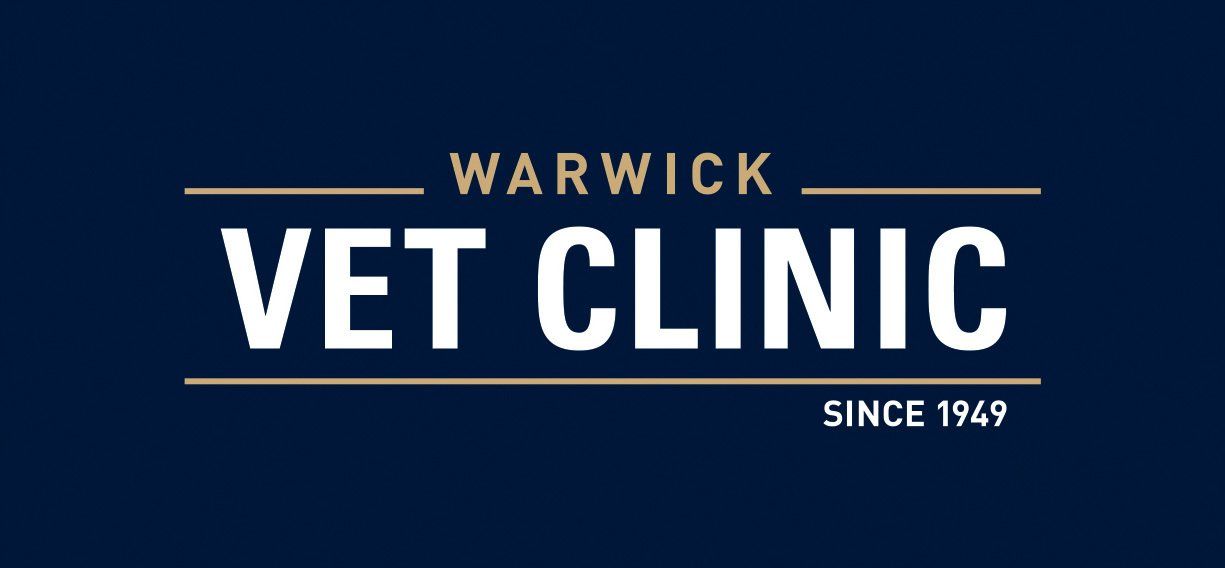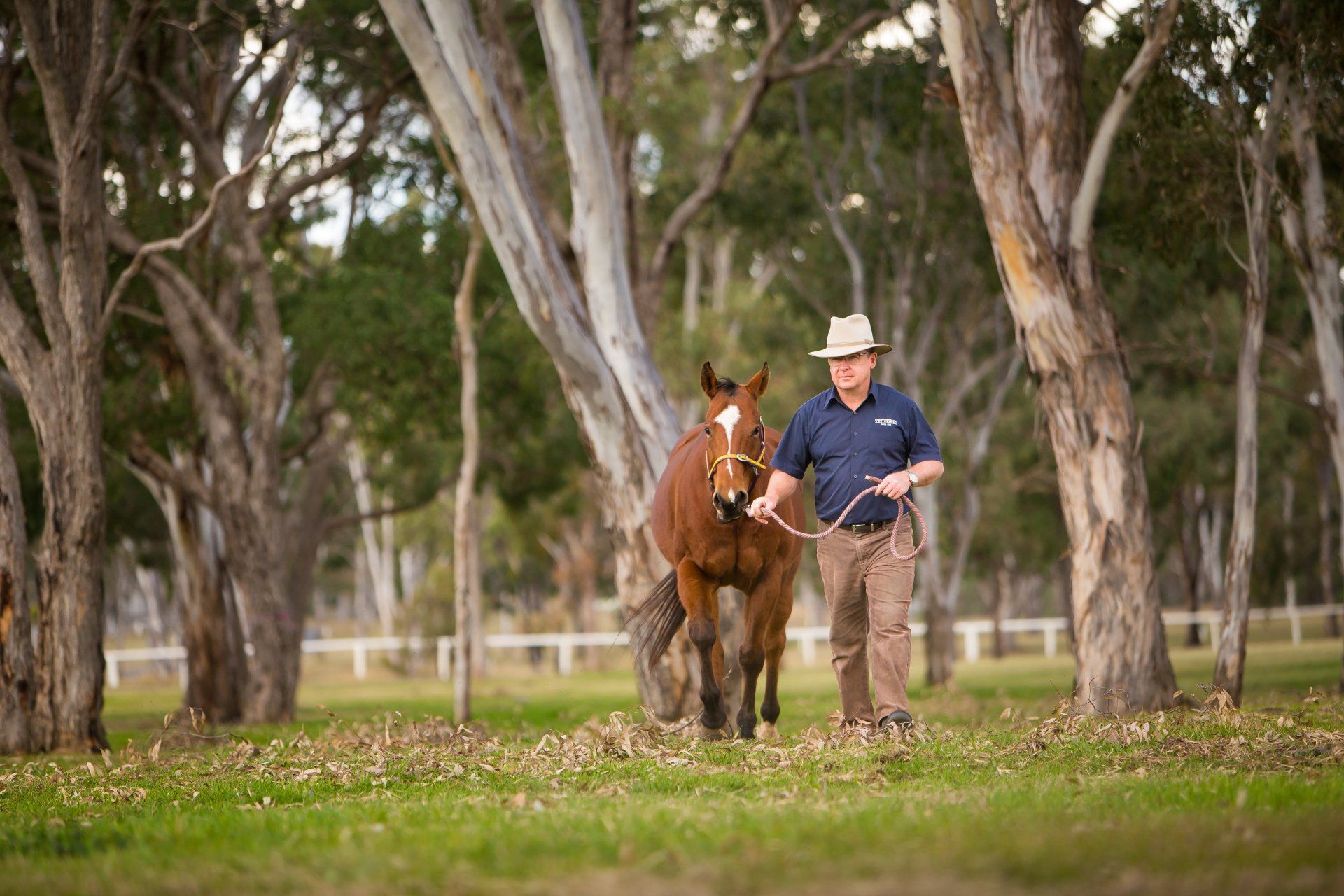FREE DPI WEBINAR FOR LANDHOLDERS
Warwick Vet Clinic • May 1, 2020
The DPI will host a 3-part series to support small landholders during times of drought and the subsequent recovery processes.
The opening webinar will discuss some topics that are constantly talked about between producers:
- Managing climate variability
- Maintenance feed requirements for horses, sheep & goats
- Land management & pasture recovery
Damien O'Sullivan (Senior Beef Extension Officer – DAF) will outline the climate variability we constantly face in Australia, the current climate outlook, the on-line tools available to help us understand climate variability and how they can be used to help us manage climate variability. Damien will also discuss the maintenance feed requirements for horses, sheep and goats (in your care) during his presentation.
Bruce Lord (Senior Scientist – Healthy Land & Water) when he discusses best grazing land management practices, why we should be using them, and how to recover our pastures following drought.
Each presentation will be followed by a Q&A session where you can ask your questions to the presenter.
Register now to receive your webinar details to join the session.
The first webinar is next Wednesday, May 6, 2020 12:30 PM - 1:30 PM AEST.
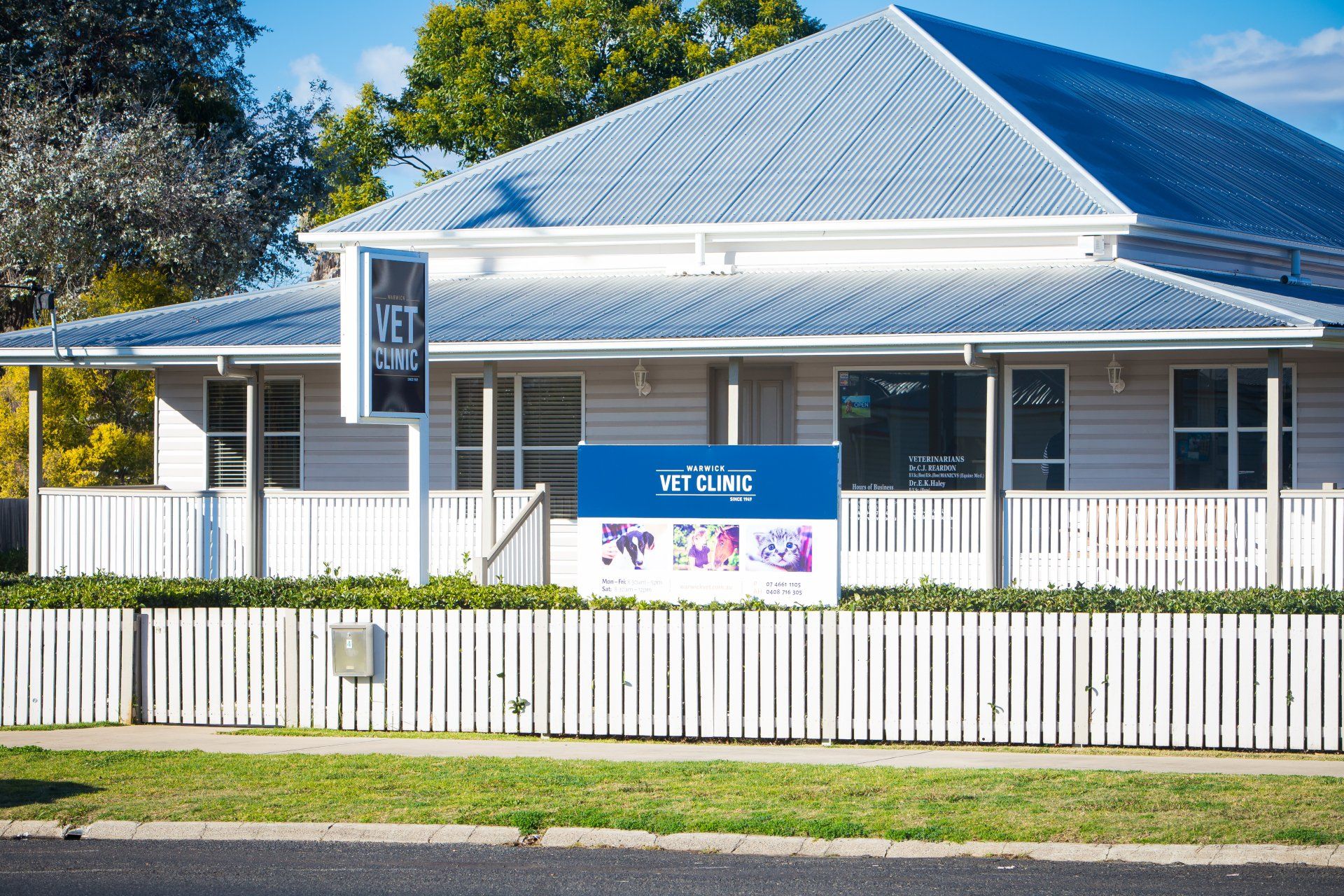
The Warwick Vet Clinic is a long-established 6 vet, 8 vet nurse mixed animal clinic which offers high quality veterinary care and health advice for all animals, large and small. Our clinical team members are dedicated and supportive and pride themselves on providing professional veterinary services in the community with passion, honesty and integrity.
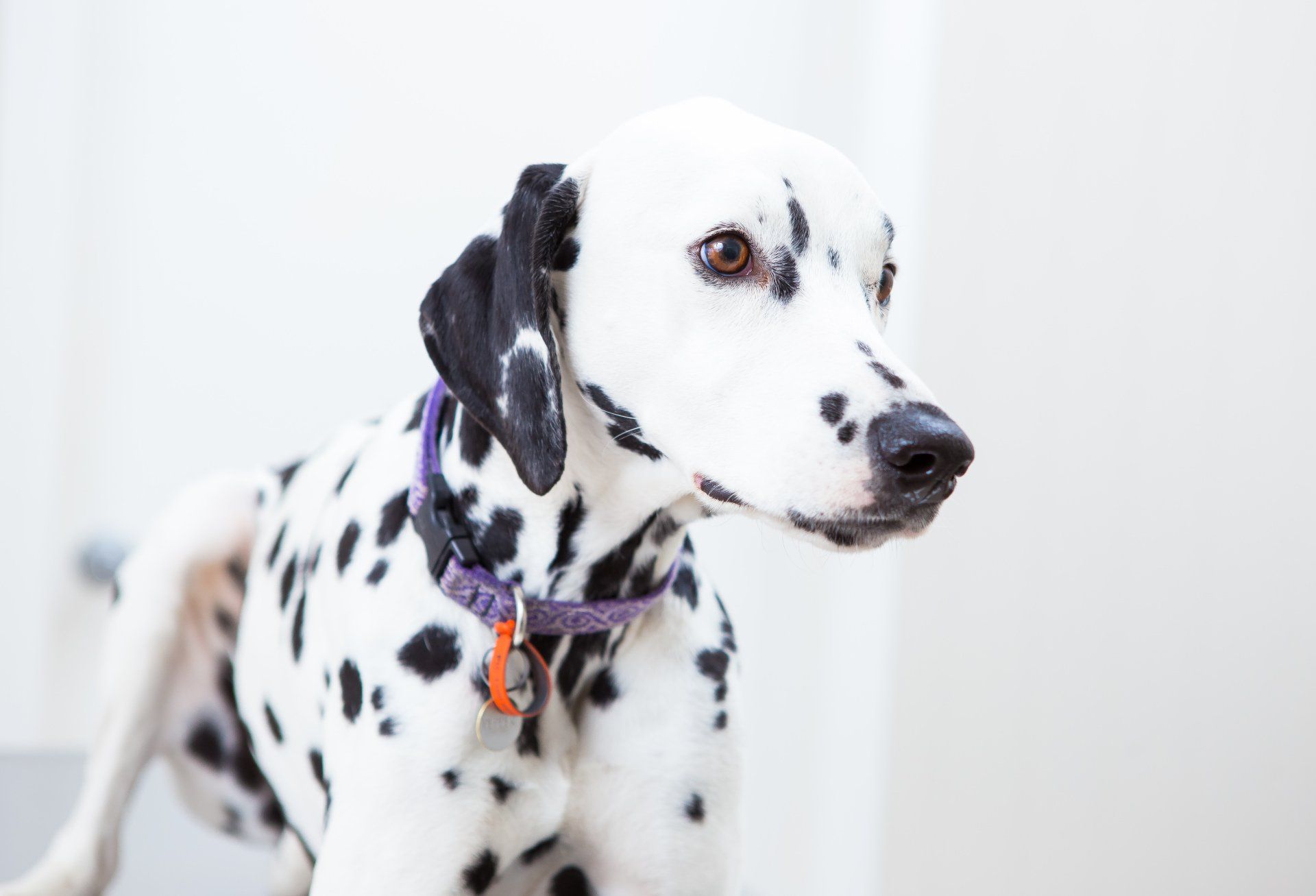
There is no doubt that the outbreak of COVID-19 is causing significant interruptions to our daily lives. One member of the household who can provide great comfort and stress relief is the family pet. The unconditional love and attention that a pet dog or cat can provide to a family can be a wonderful help during this time of isolation. Here is some information about pets and COVID which may be helpful. There have been some reports recently regarding the spread of the virus from human to animals. Based on current evidence from around the world, these human-to-animal cases are rare and isolated incidents. The Australian Veterinary Association has reiterated that the main transmission pathway for COVID is from human-to-human contact. Despite this, we should not be complacent with good hygiene when we handle our pets as we do not know everything about this virus yet. Please ensure that you: - Maintain good hand hygiene before and after handling our pet and their food and water bowls. Avoid kissing your pet or allowing it to lick your face Avoid contact with bodily fluids (faeces or urine) and, Limit contact with your pet if you are sick with COVID-19 Isolation and Pets Isolation should not have a huge impact on your animal. If you are in isolation or choosing to self-isolate, there will most likely be items that you need for your pet over this period of time. These may include food supplies, preventative health products or medications. There is no need to panic regarding these items, as we can provide a drop off service to your door if you need supplies. Please contact the clinic if you would like to receive this service. If your pet falls ill whilst you are in isolation, please contact the clinic and we will arrange the care needed. Our services have been altered during these times to ensure safety of our clients and employees. We will however provide a high standard of care for your beloved pet. Spending Time with your Pets During these times of anxiety and uncertainty, spending time with your animals can greatly benefit your mental wellbeing and physical health. Below are some suggestions on how to keep yourself and your furry friend occupied over the coming weeks. Take your dog for a walk. Doing this is a great opportunity to get yourself outdoors and is currently legal as long as you follow the Governments guidelines on social distancing. Play some games that encourage your pet to use their natural instincts. These may be ‘find the treat’ style games, obstacle courses, fetch or tug of war. This will keep you and your animal occupied for hours and your animal will love the attention. Teach them new tricks or perform some behavioural training. What better time to kick that bad habit your pet may have or to teach it a new trick that everyone will be impressed by.
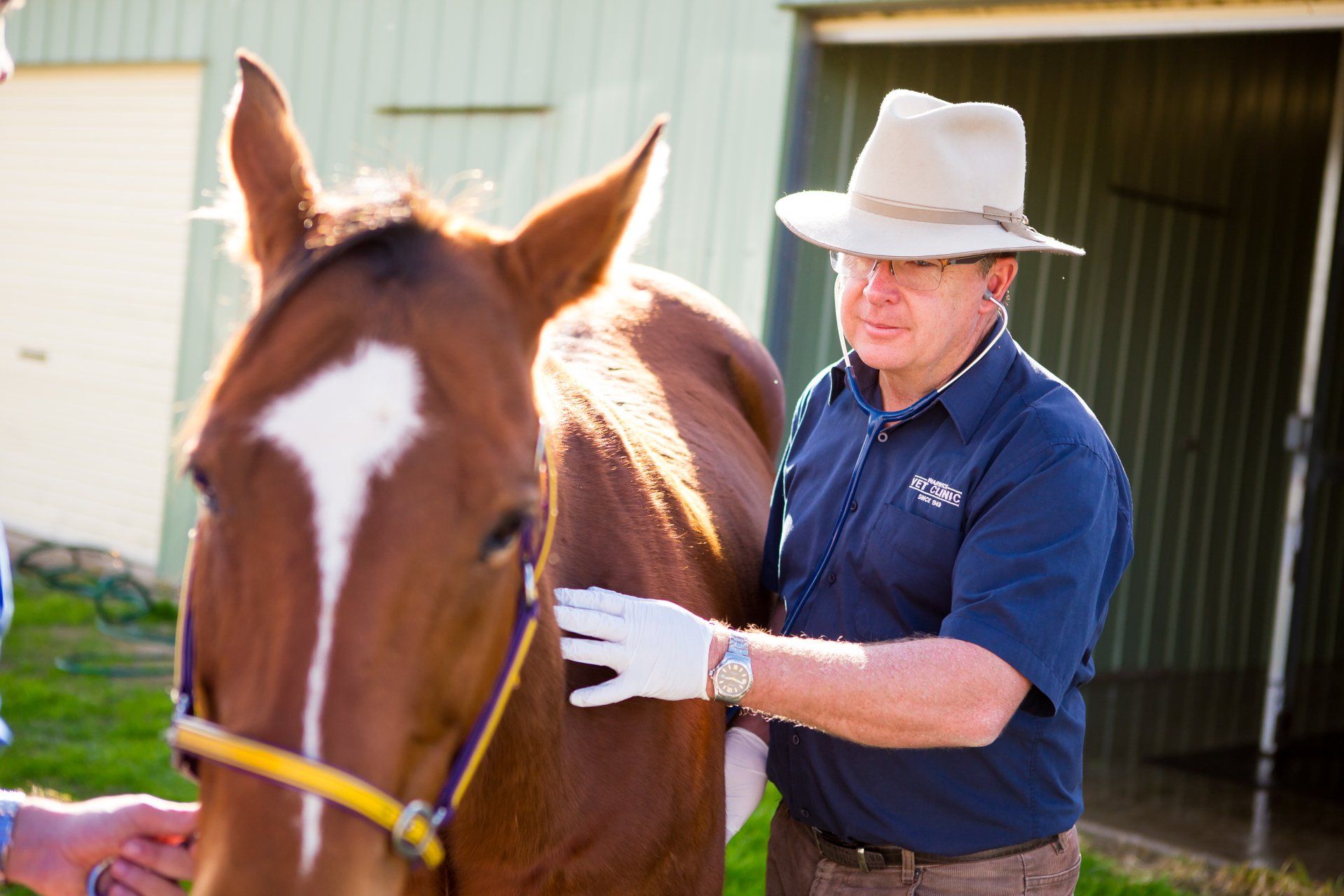
BatOneHealth is a global team of experts working across multiple scales to learn the causes of spillover and find sustainable solutions that protect future generations from zoonotic disease. Our research in Australia focuses on the complex interactions between climate, land use change, flying fox ecology, Hendra virus dynamics and spillover into horses. In particular, our long-term studies of this system enable us to identify processes that drive Hendra virus spillover and predict periods of increased risk, allowing pre-emptive interventions.

To all our valued clients, We are monitoring the COVID-19 pandemic situation closely and following all state/national guidelines as well as the Australian Veterinary Association recommendations. All our clinics have elevated our health and hygiene standards to ensure that we keep our team and our clients safe, including disinfecting public areas regularly throughout the day, encouraging social distancing and enforcing a strict wellness policy for our staff. We ask that you help us implement the following measures to ensure your pets can continue receiving essential medical treatment throughout these times of uncertainty. You Need to Tell Us If you are feeling unwell, have been overseas in the last 14 days or have been exposed to someone potentially with COVID-19 please do not visit our clinics. If your animal needs veterinary care, please phone ahead for an initial phone conversation to determine whether the patient needs to come into clinic. We will from there arrange for the animal to be collected or dropped off to the practice safely. Physical Distancing We will be observing the recommended social distancing measures of no handshakes, 1.5m distance between people and only having face-to-face contact where necessary. We ask that you phone the clinic prior to coming in and if you are given a designated consult time, that you ensure you arrive on time to limit number of people in the waiting room. We are asking that during this time, only one person accompanies their animal to the clinic to reduce the number of people visiting the premises. A vet nurse may ask to hold your pet during examination. Hygiene Etiquette We ask that you wash your hands or wipe in an alcohol base solution on the way in and out of the building with the products provided. If there is already someone in the waiting room on your arrival, stay outside until directed to enter the premises by one of our employees. Clients visiting our Warwick clinic are encouraged to park at the rear of the building, wash their hands and use the ramp access on to the veranda. Please use our contact-less payment methods. Home Deliveries If your pet is on long-term medications or you are wanting to purchase any over the counter products, please call prior to coming into the clinic so we can have them ready for you, or alternatively arrange for us to drop them to you in our Pet Taxi. Payment will need to be made over the phone, prior to these products being delivered. Telemedicine Consultations over the internet will be made available where a bona fide veterinarian-client-patient relationship exists. Telemedince consults may be suitable for simple post-operative assessments, medical progress examinations and revisits, repeat authorisation/prescription requests and lower risk cases such as non-urgent skin disease and mild gastrointestinal conditions. A nominal fee may apply. Visitation of pets in clinic will be suspended however we will continue to keep you regularly updated on your pet´s progress through Zoom (Video) and photographs. Finally, we thank you for your patience and understanding and know that we will get through this together. The care of your pets, large and small, remains our primary focus, and we hope that you and your families all stay well over the coming weeks.
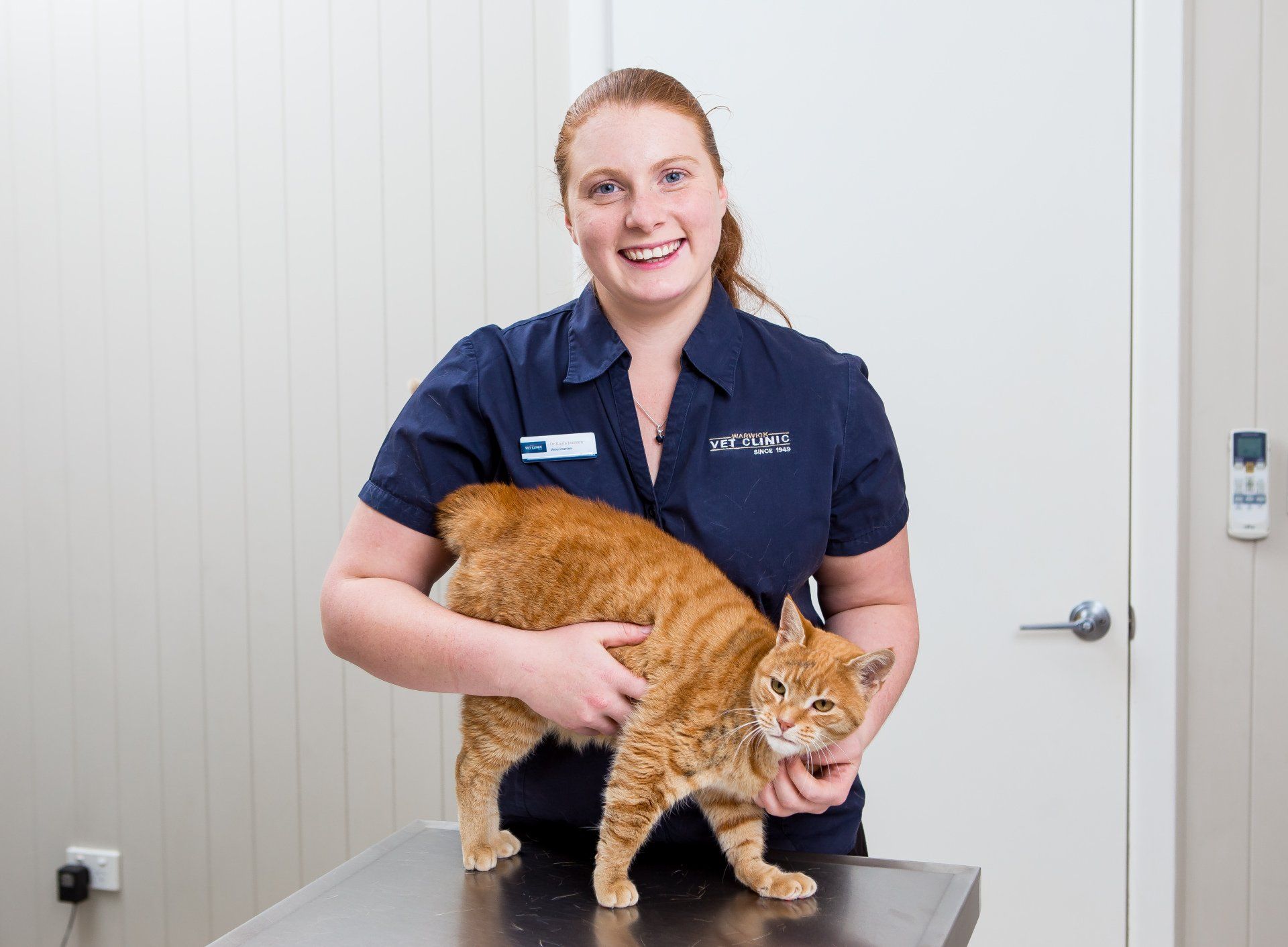
'Since as long as I can remember, I have always wanted to be a vet. Growing up all along the Eastern Coast of Australia we had many household pets and wildlife which fuelled my passion for understanding animals. I come from a large family who have always been incredibly supportive of my dream to one day be a Veterinarian. It wasn’t long before I got my first practical experience doing work experience at Gold Coast Animal Referral and Emergency (GCARE) and as it turned out, this developed into my first job and a traineeship in Animal Care. During high school I worked at the Animal Emergency Centre (AEC) and volunteered at a local community farm and the Currumbin Wildlife Sanctuary. This further fostered my love of critical care, large animals and exotics, in particular native animals. I studied a Veterinary Science at the University of Sydney and in my spare time volunteered with the University Vets Beyond Borders and Wildlife societies. I also worked as a live-in vet student at Haberfield and worked weekends as a vet nurse. As a student, I loved all these opportunity I had to care for the sick and injured animals and put what I was learning into practice. Following graduation, I moved to Warwick to begin working with the amazing team at Warwick Vet Clinic where I have continued my education with attending Critical Care Conferences, Diagnostic Imaging Online Courses and Bovine Practical Skills Workshops. I love the sense of community Warwick has and feel I have learnt so much and formed great bonds with our patients and clients. I look forward to caring for all the animals, big and small in the years to come.’
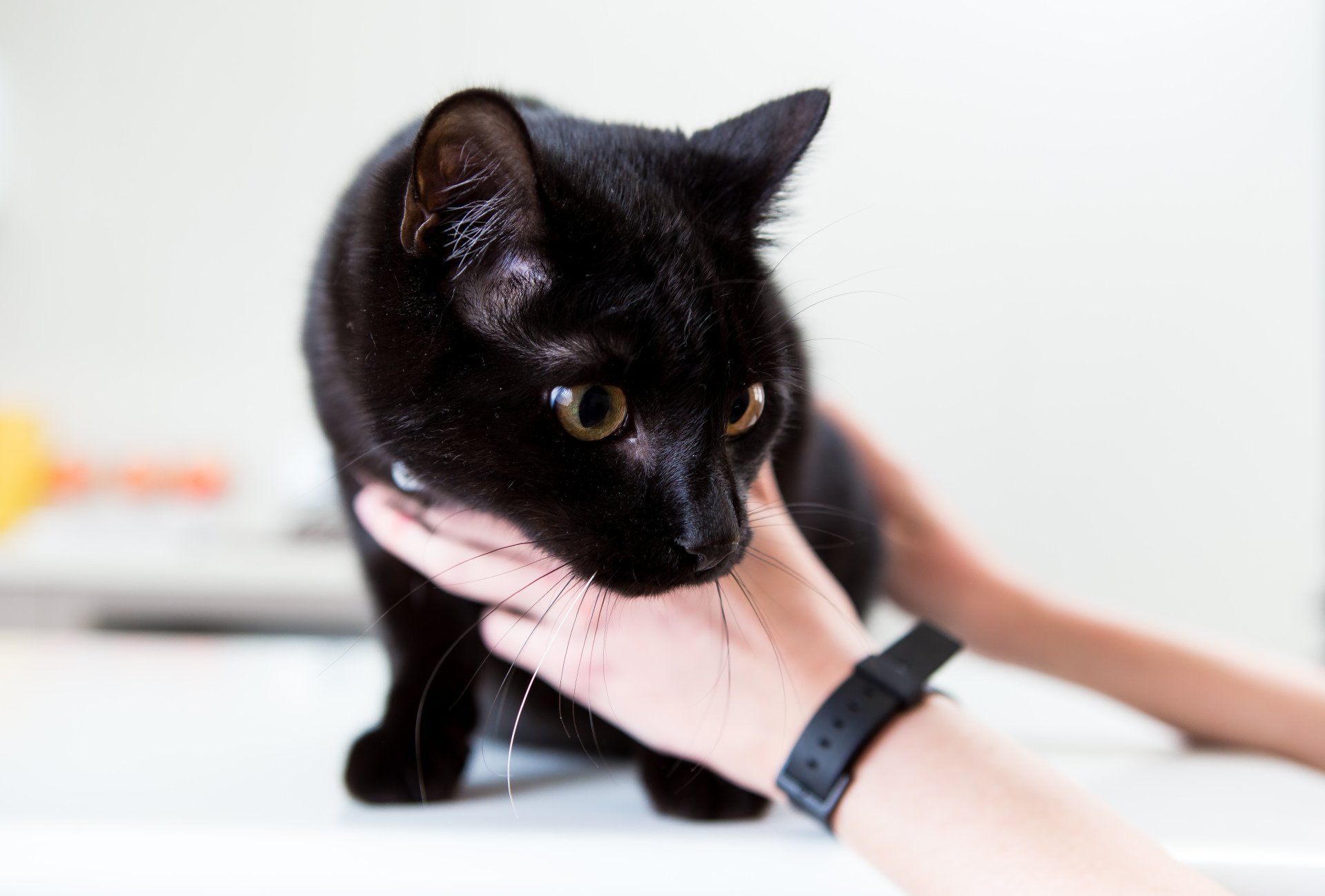
As the weather gets warmer and hopefully wetter, you may notice an exponential growth in the number of creepy crawlies around. One special arachnid, the paralysis tick (Ixodes holocyclus) is of particular concern to veterinarians in Australia. Paralysis ticks produce a neurotoxin in their saliva that is injected into their furry four-legged hosts as they feed on their blood. This toxin binds to receptors and prevents the transmission of information between nerves and muscles, leading to paralysis usually within 2-3 days. While symptoms may present in a variety of ways, the most typical presentation involves wobbly gait, weak hind legs, a change in bark/meow, reduced reflexes, inability to protect their airways, and most importantly difficulty breathing. The clinical signs generally progress from the hindlimbs forward with paralysis of the respiratory muscles ultimately leading to death. Treatment typically involves the use of acaricides to kill attached ticks and an intravenous infusion of Tick Antiserum to bind free toxin circulating in the body in addition to supportive care including fluid therapy, eye lubrication, bladder expression, and frequent turning. Even with prompt diagnosis and treatment, prognosis can still be guarded as they may continue to decline for 24-48hrs before improving. As the old saying goes, prevention is far better than cure. Treatment requires at least 1-2 days of intensive hospital care and total costs can range from $1,000 up to $10,000+ especially if referral and ventilation is required, and all with no guarantee of survival. In contrast, prevention can cost as little as $20-30 a month. A range of products are registered to protect against paralysis ticks including chewable and spot ons, which typically need to be reapplied once a month or once every three months. It is also important to perform daily tick checks as no product is always 100% effective. Ticks can be found almost anywhere, and no one is safe, even pets kept indoors. Ticks usually enjoy warm humid climates and tall grass but can be brought closer to home by marsupials and even be tracked inside by humans and other pets. If you do find a tick on your pet, it is important to remove the tick and its mouth parts with tick twisters or tweezers, keep the tick in a sealed vessel for identification (please don't squeeze or crush it), and call the clinic as soon as possible. The earlier the treatment, the better the prognosis! More information on disease prevention can be found on our website.
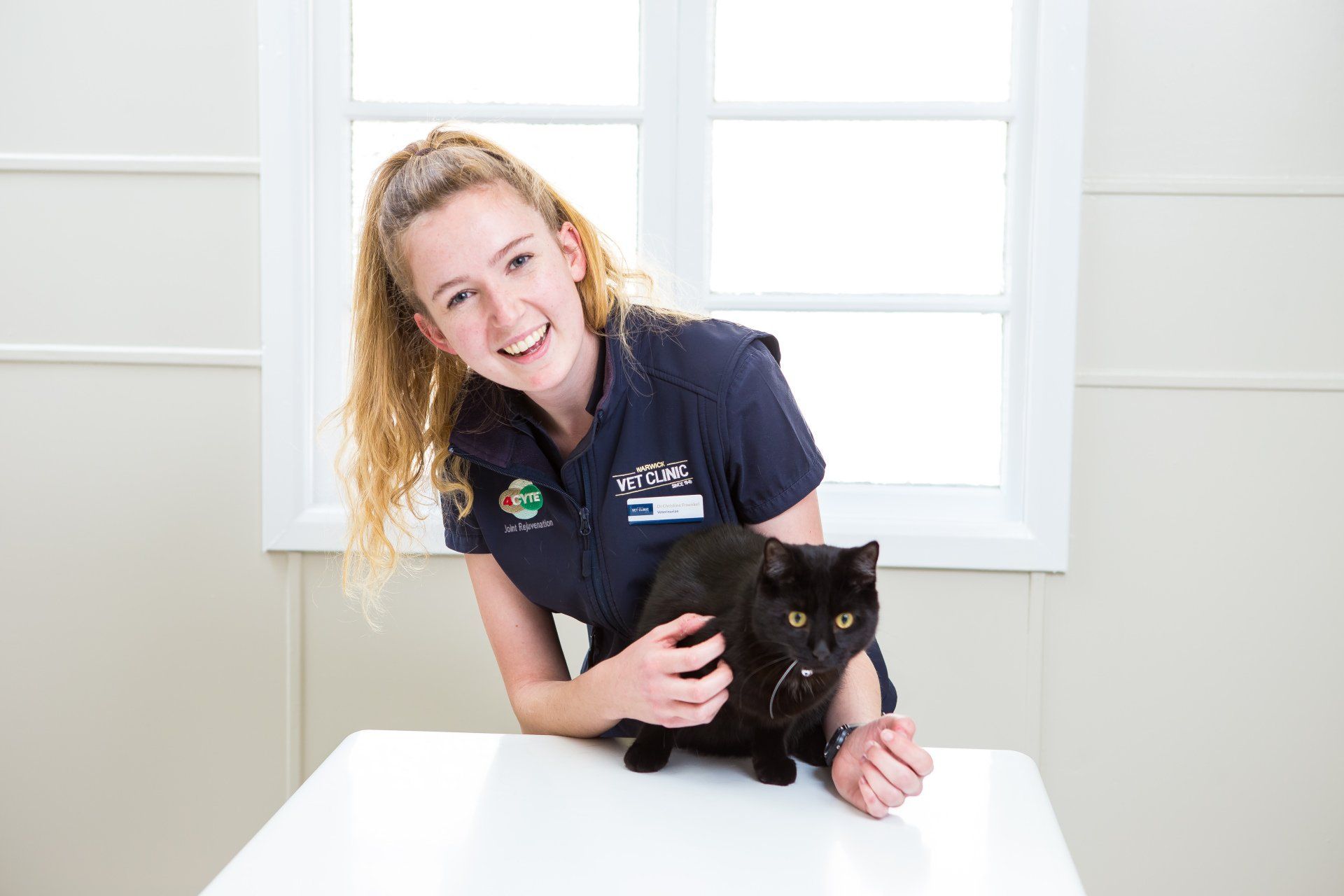
I grew up in the inner-city suburbs of Brisbane as the youngest of three children. Thanks to my mother’s love of animals and inability to say no to her pesky kids we always had a myriad of animals including dogs, cats, cockatiels, budgies, guinea pigs, fish, and even a peacock. This combined with my passion for science nurtured both at home and school meant pursuing a career as a veterinarian was a logical choice. After school I attended the University of Queensland Gatton campus where I obtained a bachelor’s degree in veterinary science (Honours). During this time, I became involved in creating and running the UQ VSA Peer Support Network, whose mission is to support the mental health and wellbeing of the student body. I first attended Warwick Vet Clinic as part of my final year clinical placement and was impressed by the standard of care, teamwork, compassion, and respect demonstrated by all clinic staff. So, it’s no surprise that when I was offered a job, I gladly accepted the opportunity. Since starting in January 2019, I have thoroughly enjoyed the variety and sense of community working in a regional mixed practice brings. I especially enjoy the medical and surgical challenges as well as getting to know clients from all walks of life. As a recent graduate I’m still developing my areas of interest, but I am already an avid believer in the importance of preventative healthcare in helping our pets live fuller and longer lives. If I am yet to meet you or your pet you can find me at Warwick Vet Clinic most days, or Allora Vet Clinic and Clifton Vet Rooms on Wednesdays. I look forward to meeting you all!
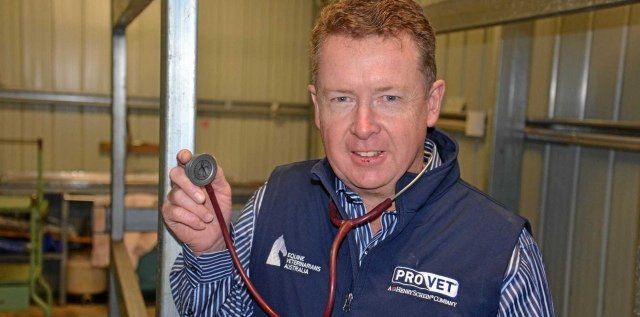
by Tessa Flemming Warwick Daily News 28th Jun 2019 6:27 AM A WARWICK vet has been awarded the top honour for veterinary sciences. Warwick Veterinary Clinic's Chris Reardon received a fellowship for outstanding service during the Australian Veterinary Association's Annual conference in Perth. While the award was for Dr Reardon's overall contribution to veterinary sciences, he is best known for his work as the official vet for the Australian Polocrosse Association and the Polocrosse World Cup. Warwick Polocrosse Club president Les Fraser said he was overjoyed at Dr Reardon's achievement. "I think its a wonderful recognition of Chris' contribution,” he said. "In this day and age where animal welfare is first and foremost, Chris' documentation of movement and recovery at a national level is wonderful. "We're very fortunate to have a vet in the calibre of Chris Reardon in Warwick.” Dr Reardon was also touched by the award. "It's very satisfying to get recognition from your peers,” he said. For the Warwick vet, the joy of the job is in helping his community grow. " I enjoy the science but also working with people,” he said. "Understanding how animal systems work can help contribute to the community and the whole productivity of farm life, as well as the families that the pets come from. "Its given me a lot of joy over the years and I look forward to continuing to contribute in whatever capacity I can.” The Australian Veterinary fellowship is highly renowned across Australia, with only 70 vets nationally who have been awarded the honour. The award also comes just in time for the Warwick Veterinary Clinic's 70 year celebrations and the upcoming Polocrosse nationals in Ballarat.
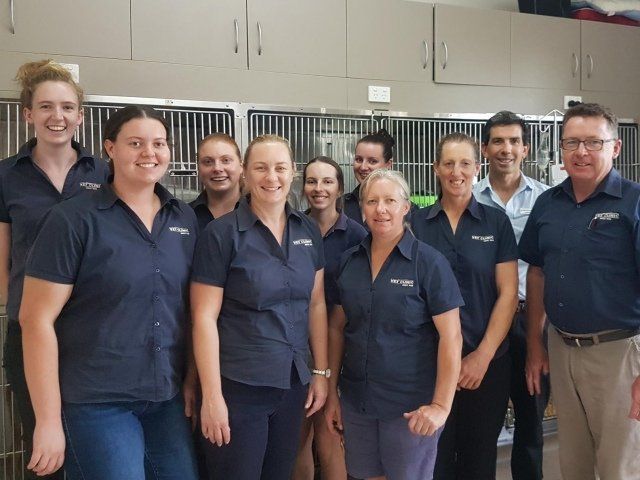
Owning a pet can be one of the most enriching commitments an owner will make in their lifetime. The joy and unconditional love and faithfulness a dog, or cat can bring to the household, is a wonderful virtue of owning a pet. Animals are faithful, loyal and often very forgiving of our mistakes and failures. They grow with the family and bond with their owners, taking part in their everyday experiences. To some, they are their most important friends in the world! It is understandable then that pet owners may feel a huge sense of loss when their pet comes to the end of its life. The emotions experienced when a pet passes, or when having to make the decision to put them to rest, can be like losing a close friend or companion. Feelings of anger, denial, grief and guilt are all-natural responses felt by pet owners during this difficult time. Sadly, however, the loss of a pet may be disregarded by others as unimportant. Often pet loss is not openly acknowledged or socially supported. Studies show that If not recognised, these unchecked emotions encountered can potentially lead to long term health problems for the owner. Knowing what to say, how to respond and where to find support for our clients’ during the time of pet loss is something the practice feels passionately about. Recently, the team at Warwick Vet Clinic invited veterinarian Dr Michael O’Donoghue from People and Pets to talk about ways in which we can do improve on supporting our clients during this time. Dr O’Donoghue brought a wealth of experience from his time working with universities, speciality clinics and in industry and discussed ways how we can make it easier for people experiencing grief with the loss of their pets. The day was a valuable experience. Our team now feels more confident in supporting our clients when the time comes to say goodbye to their pet; either in the clinic or in the familiar setting of their home.
